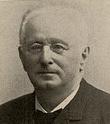Scilla-mar [Squil]
Cough excited by drinking cold water, in violent short. Paroxysms, with difficult expectoration in the morning of whitish or reddish-colored mucus of a repulsive, sweetish taste; VIOLENT ACRID CORYZA, eyes are full of water; rattling of mucus in chest; sneezing and involuntary micturition with every fit of coughing; absolute lack of sweat; the morning cough wit its expectoration is far more exhausting than the dry evening cough; GREAT CHANGING OF COUGH, lose or dry; one day he coughs all day, next day he seems well, one night he coughs constantly, the following night he sleeps well.
Senega [Seneg]
Chubby children, paroxysms, (<) evening (Kali bi, (<) morning), with tough expectation clear as white of egg and difficult to raise; sensation of crushing weight in chest.
Sepia [Sep]
Cough day and night, nut especially during night, with retching and complete loss of breath; cough comes in rapid succession, till breath is exhausted, then gagging and vomiting of mucus in daytime without, in morning, evening and at night with expectoration of yellow, green, or gray pus, or of a milk – colored tenacious mucus, of repulsive taste and unpleasant odor, from cold damp air; congestion; stitches and shocks in chest, relieved response, from cold damp air; congestion; stitches and shocks in chest, relieved by pressure of hand on chest; piercing in back, in scapula burning of palms of hands; coldness of legs and feet;chilliness with every motion; (<) every night with retching and complete loss of breath.
Silicea [Sil]
Dangerous spasmodic cough, excited by talking in suprasternal fossa, in evening and at night without, mornings and during day with expectation of a yellow, purulent, tough, acrid, mucus, more rarely of bright frothy blood, of a fatty taste and offensive odor, worse from change of air, before a thunderstorm, at the new moon, from eating cold things; or hastily willfulness of children, with weeping; throbbing headache, epistaxis; the blood acrid and corrosive; this; vomiting of cold drinks, of food, then of bile hard burning abdomen of children; discharge of worms; of food, then of coryza m, such sneezing sighing, deep respiration; tightness in chest; stitches in chest, extending through to back, stinging foot -sweat; swelling and coldness of feet.
Spongia [Spong]
Sporadic cases of whooping-cough irritation to cough high in the larynx, as if from a plug, attended, in the morning alone, by the detachment of a scanty, tenacious, yellow, or indurated mucus, of hardly any from cold air, excitement, motion organ of blood in chest, wheezing inspiration; spasmodic constriction in chest; anxious dry heat; prostration sweat all over early morning.
Sticta-pul [Stict]
Spasmodic stage, cough dry and noisy, excited by tickling in larynx, finally extending to lungs, every evening and continuing through night all secretions dry quickly and are discharged as scabs; frontal headache.
Sulphur [Sulph]
Frequent relapses, without any known cause, or from exposure to cold in psoric patients; suppressed cough.
Thuja [Thuj]
Coughs only in daytime; oily-looking skin; constant eructations when eating spasm and stitches in chest from drinking anything cold.
Trifolium-prat [Trif-p]
Spasmodic shaking cough-bronchial rales; asthmatic respiration; profuse stringy, cohesive sputa, like white of an egg.
Veratrum-alb [Verat]
Epidemic whooping-cough (spring and fall) deep, hollow, ringing cough, excited by a tickling in the lowest branches of bronchi, seeming as if it came from abdomen, at night without, in daytime with expectation of yellow, tenacious mucus of a bitter saltish, or sour and putrid taste; worse form cold into a warm air, from getting warm, damp cold weather, eating and drinking cold thighs; neck too weak to hold eat up; cold sweat on forehead; great craving for acids and acid fruits.
Zincum-met [Zinc]
Children, as soon as they begin to cough, gasp the genital organs with their hands in adults their varicose veins may burst and bleed from the exhausting spasmodic cough, excited by a tickling as far down as the middle of chest expectoration during day of yellow; purulent, blood streaked sputa, of a sweetish metallic taste, or of bright blood.

